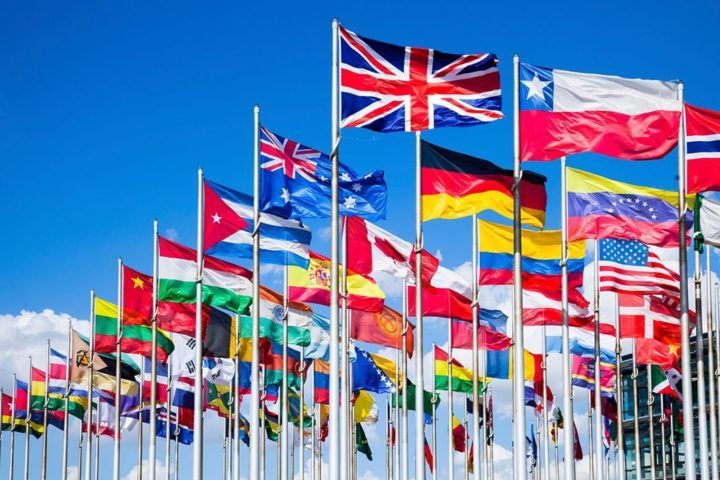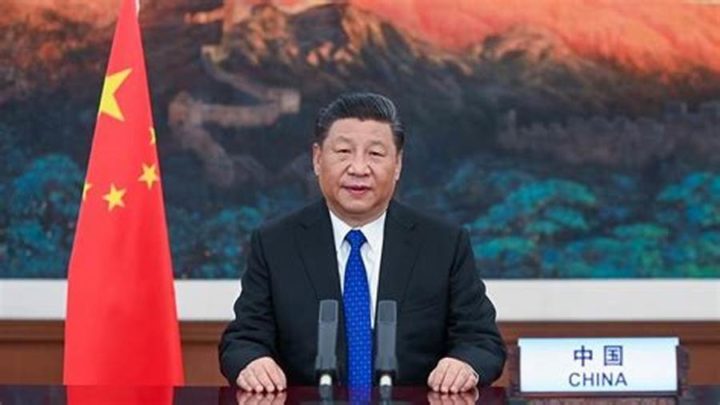‘Climate leadership’ Can a strong UK NDC inspire international ambition?
The Climate Ambition Summit in December is an opportunity to send strong signals to the multilateral process, how can the UK become a true international champion?
By Alison Doig
Share
Last updated:

In recent months there has been a growing concern among those familiar with United Nations climate change negotiations that, with just one year to go to COP26 in Glasgow, the UK badly needs to up its game internationally, starting with a dynamic, ambitious NDC.
NDC = ‘Nationally Determined Contribution’ – the pledge countries originally put forward for the Paris Summit of 2015, setting tougher targets for reducing emissions in the years to 2030, which are due to be upgraded by the end of this year.
The reason for the upgrade? That is simple. `When adding up all the country pledges made at the Paris summit (COP21), it is clear they are insufficient in delivering the Paris Agreement goal of keeping global temperature rise ‘well below 2oC’ let alone the safer and preferred 1.5oC limit. Therefore, in the Agreement, countries called on each other to present improved NDCs by the end of 2020, the year the Agreement officially starts.
What is at stake?

It’s worth recalling exactly what’s at stake here. The Climate Vulnerable Forum (CVF), a group of 48 countries most at risk from climate impacts, has called on all nations for the delivery of enhanced NDCs by midnight on 31st December 2020, something which it refers to as a “survival deadline” for the CVF members.
For the CVF’s 1.2 billion people, the urgency for big emitting nations to cut greenhouse gas emissions faster in the next 10 years is literally the matter of a life or death question. In 2018 the Inter-governmental Panel on Climate Change (IPCC) Special Report on 1.5˚C told the world that the next decade is critical if governments are to keep global temperatures below the 1.5ºC, warning of dire consequences for the world, and in particular for these vulnerable countries, if governments fail to deliver.
But their statement is also a clarion call in the diplomatic sense. These nations are natural allies of more progressive developed countries, including the UK, in the climate negotiations - but only if the UK and its fellows step up.
How is the UK playing things?
So far, the UK’s position has been to call for other nations to put forward ‘ambitious’ NDCs while declining to do so themselves.
However, there is now growing anticipation for the UK to release its NDC at the Climate Ambition Summit it has called for on 12th December, which it will co-host with the UN Secretary-General, France, Chile and Italy, marking the five-year anniversary of the Paris Agreement. It would be a massive own goal for the UK to call the summit, make these requests and then not proffer its own commitment.
The UK, in fact, has a little catching up to do as some of the world’s big emitters are starting to ramp up their own NDC efforts.
It looks likely that the EU will present its enhanced offering in December, with its emissions reduction target raised substantially from 40% by 2030. The European Parliament has proposed a 60% target for Europe, and the European Commission has recommended 55%. The decision will come from the EU Council of Leaders, which meets on 10-11th December.
This increased target is being driven by the EU Green Deal policy, which looks to deliver real world change across EU countries in buildings, renewable energy, chemicals and methane emissions.
Brexit politics also come into the equation with it being the UK’s first international climate commitment made outside the EU. It is an ideal opportunity to put some climate change clothing on the Government’s promise of a better Britain after Brexit by putting down an NDC that’s more ambitious than the EU’s – or face the unfavourable comparisons a weaker offering will bring.
Having declared last month its ambition of reaching net zero emissions by 2060, China is also indicating its willingness to strengthen its NDC. It has already said emissions will peak and decline before 2030, and there are calls from inside China to enhance this commitment in its NDC, with emissions peaking at or before 2025. The NDC will be set in the context of its 14th Five Year Plan, which gives the potential of embedding climate action directly into China’s economic planning.

Meanwhile the world’s third major emitter, the US, is facing an election critical for its climate change ambitions, as for so much else. If he wins, Joe Biden has promised to bring the US ‘back into the Paris Agreement’ and ‘challenge every other country to up the ante on climate commitments.’ It’s highly unlikely that a Biden-led US could strengthen its NDC by 12th December, but its direction of travel is forecastable and again, a weak offering by the UK would likely look increasingly threadbare as 2021 progresses.
So far about 10 countries have submitted enhanced NDCs, including Chile, Rwanda, Vietnam and Jamaica; and over 100 vulnerable and developing countries more have pledged to do the same in 2020. Overall, it is still a case of the poorer and less polluting leading the wealthier and more polluting.
All told, the Climate Ambition Summit in December is an opportunity to send strong signals to the multilateral process, and potentially a rallying call to those countries who are dragging their feet on presenting a strengthened target, to include Australia, Indonesia, Russia and Japan. It is an opportunity to champion the Paris Agreement as a truly joint international effort. But in order to do that, the UK will have to look like a true international champion.
Share